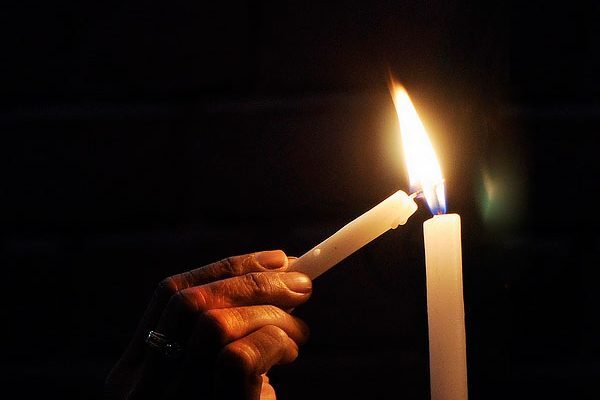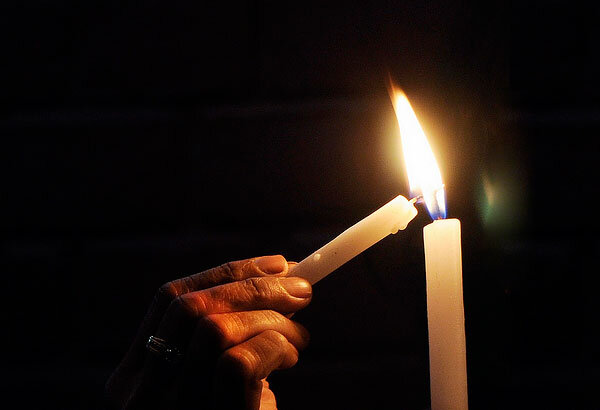
One of the country’s network providers, Telecommunications Networks Malawi Limited (TNM) has expressed its concern over the frequent blackouts that have hit the country.
According to Tnm’s executive director for Blantyre Davie Nyirenda, the blackouts are not doing them good since they are costing them a lot of money.
He said these blackouts are forcing them to be using power generators which cost money considering the fact that the generators use fuel.
“Electricity is vital for network companies like us and for sure we do rely on them for service delivery but with these blackouts it is not doing us good.”
 “We all know that the blackouts are as a result of the lowering of the water levels in the Shire River a development that has seen Escom facing challenges in electricity production,” said Nyirenda.
“We all know that the blackouts are as a result of the lowering of the water levels in the Shire River a development that has seen Escom facing challenges in electricity production,” said Nyirenda.
He then asked the general public to work hand-in-hand in taking care of the environment in their respective sorroundings with the aim of dealing with effects of climate change.
Currently, a day cannot not pass without domestic and industrial electricity users across the country tasting blackouts, sometimes to an extent of reaching over 12 hours without electricity.















The South African Institute of Race Relations (IRR) recently released a report titled “The rise and fall of Eskom”, which provides immediate remedies for South Africa’s electricity crisis.
According to the report, the permanent solution to the crisis is to build sufficient power stations to cope with our electricity demand.
However, it will take years for Medupi and Kusile to meet present demand – let alone future demand.
This raises the question: Is there anything that can be done in the interim to alleviate the problem?
The following points give an overview of the immediate remedies suggested by the IRR. They contain extracts from the report, and are not necessarily the opinions of MyBroadband.
Immediate remedies
1 – Eskom must do all the necessary maintenance
At the moment Eskom has a policy of trying to ‘keep the lights on’, which means avoiding maintenance on the power stations.
It would be better if Eskom did the necessary maintenance, which would mean more blackouts, and scheduled the blackouts so that consumers could plan for them.
It might even make financial sense for Eskom not to run its gas turbines, and accept even more blackouts.
Key industrial customers, such as mines and smelters, should then be favoured over households and businesses that are better able to cope with blackouts.
2 – Enable private power suppliers
All bureaucratic, regulatory, and political obstacles against private power suppliers selling electricity into the grid should be removed.
3 – Dividing South Africa into two time zones
Since the time of peak demand in South Africa and elsewhere is at supper time, about 19h00, it has been suggested that the country should be divided into two time zones, an hour apart.
Supper time in the western half would be an hour after that in the eastern half, reducing the national peak demand. This should be investigated.
4 – Using power ships
Some African countries, notably Ghana, get electricity from ‘power ships’, which are essentially floating power stations. This could be a possibility for Durban, East London, and other coastal cities.
However, such electricity would be powered by oil or gas, which would determine whether its price was economic for South Africa.
5 – Reduce electricity demand
All measures to reduce electricity demand or shift from electricity to other sources of energy would help.
Householders using gas rather than electricity for cooking at breakfast and supper time would help greatly. The obstacle to this now is that gas is more expensive than electricity.
6 – Use ‘smart meters’ and charge by ‘time of use’
The problem with household electricity pricing is that municipalities buy electricity from Eskom at ‘time of use’ (TOU) tariffs. At peak times they have to pay far more than at off-peak times.
However, they sell it to householders at flat tariffs. The municipalities make money by selling electricity off-peak and lose it by selling electricity on-peak.
The solution would be to have ‘smart meters’ in each household and to charge the householder by ‘time of use’.
Permanent solutions for Eskom
The best way forward is to keep Eskom as a state-owned generator, while allowing any company to compete against it for the generation and sale of electricity – provided this competition is strictly on a commercial basis and is not skewed by subsidies.
1 – Eskom must be depoliticised
Eskom must be depoliticised. It should resume its old function: to provide sufficient, reliable electricity and to cover its costs.
It should be forbidden from pursuing political, social, or racial ambitions. It must appoint its engineers and other technical staff entirely on merit.
Its financial managers must be forced to accept that Eskom’s purpose is to provide a service and not to make a profit. They must also accept that it is happy with a low rate of return (3% real or less) and a long payback time.
They must borrow to fund the new stations, with repayment scheduled to take place over a period of some 40 years, and they must manage the debt responsibly.
2 – Eskom’s transmission system must be taken from it
Eskom’s transmission system must be taken from it and given to an independent operator. All large-scale generators must be entitled to use the transmission system in return for a reasonable fee, based solely on technical and commercial considerations.
3 – Allow people to sell electricity to the grid
Households which generate small amounts of solar power should be allowed to sell their electricity to the national grid.
4 – Electricity distribution should be taken away from municipalities
Electricity distribution should be taken away from municipalities and given to private electrical engineering companies. These will have to compete with one another in supplying final customers, which will help keep their prices down and their efficiency up.
5 – Select good energy sources for future electricity generation
Energy sources must be chosen on scientific and commercial grounds, so as to serve the best interests of mankind and the environment.
For baseload electricity, there are two present options and two possible options in the future. The present options are coal and nuclear, of which nuclear is the better.
The future options are gas (from the Karoo or Mozambique) and hydroelectricity imported from Central Africa.
For peaking power, the options are gas turbines (which have low capital costs and high operating costs) and pumped storage (high capital costs, low operating costs).
Concentrated solar power (CSP), with storage, might be a third option.
At present, electricity generation is beset with unnecessary problems. But sensible solutions lie readily at hand if the State is willing to grasp them.
It is obvious that these massive blackouts have a political element of some kind: it is either sabortage because there had never been blackouts of this kind during JB ‘s reign, or one of cashgate techniques done by the DPP officials-may be money that eould be used to boost our electric power is being syphoned by the big gurus. WATER LEVELS IN SHIRE RIVER HERE, AND BLA BLA BLA THAT- What about water levels? Why about water levels only during DPP reigns and not the PP reign that we had in 2012-2013?
Let our leaders be honest.